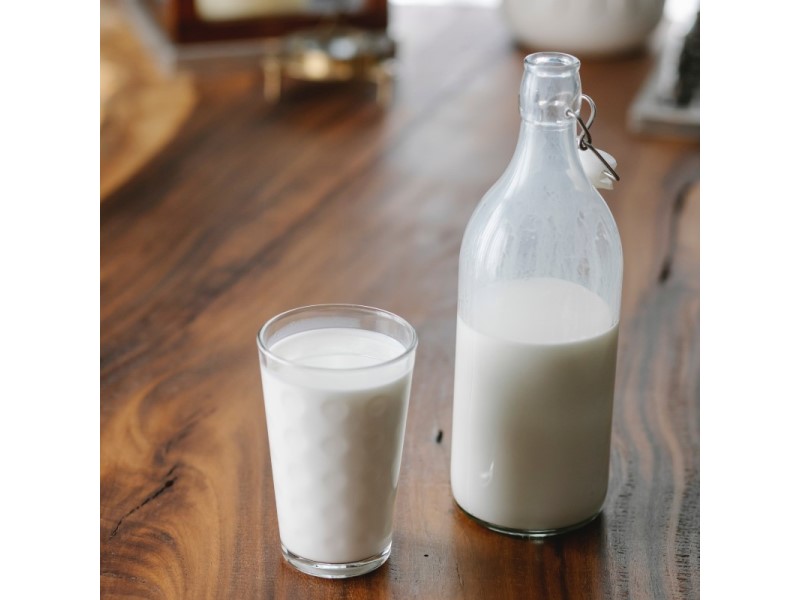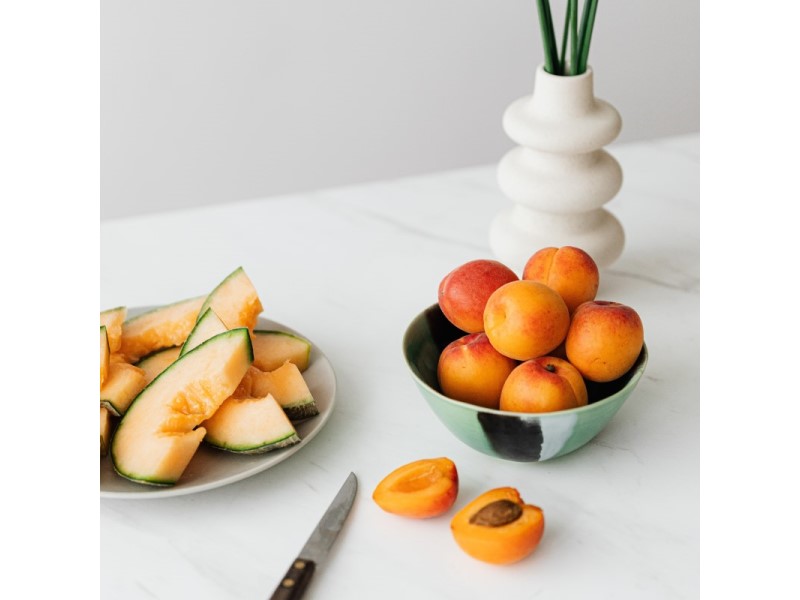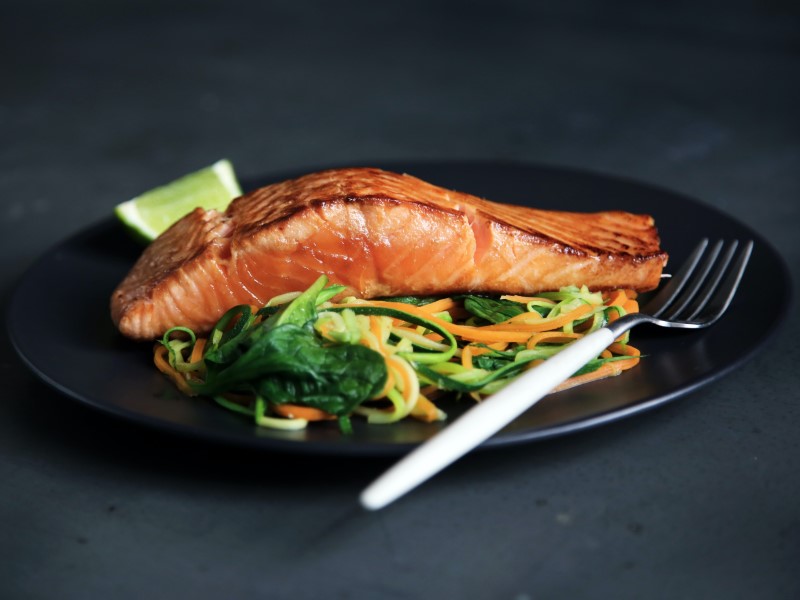Trying to conceive or already in the midst of pregnancy? Then nutrition is something you should take seriously. After all, a baby gets all the essential nutrients from their mother. What’s more, increasing the intake of protein, vitamins, and minerals is vital not only to meet the nutritional demands of pregnancy, but also to ensure the baby grows and develops normally. Below, we’ve rounded up 11 of the most important nutrients and vitamins for pregnant women, along with the best food sources for each one.
The Most Important Nutrients And Vitamins For Pregnant Women
Energy

Why it’s needed: Especially important during the second and third trimester, as well as for lactating mothers, extra energy is needed to sustain proper weight gain throughout the course of pregnancy. It’s also needed to increase basal metabolic rate (BMR), since this cannot be compensated for by reducing daily energy expenditure.
Best food sources: Grains such as rice and bread. However, wholegrain is always recommended since it has a higher fibre content. Meet your daily energy and nutritional needs by consuming these foods that give you your required calories. Avoid ‘empty’ calories like refined sugar and carbs.
Protein
Why it’s needed: Protein is important for the healthy growth and development of your baby. After all, protein is what our bodies need for the proper growth of muscles, bones, body tissues, skin, hair, and more.
Best food sources: Get your source of protein from lean meat, chicken, eggs, milk, cooked fish, and seafood. If you’re vegetarian, legumes like dhal, lentils, beans, and soy products like tempeh and tofu are good choices.
Folate
Why it’s needed: Folate is a B-vitamin variant that’s crucial for proper cellular function. You can also get a doctor’s prescription for folic acid supplements when you’re trying to conceive and during the first trimester. This would prevent deficiency, thus lowering your baby’s risk of spinal cord defects.
Best food sources: Fruits and vegetables. From leafy greens like bok choy, to asparagus, lady’s fingers, lentils, legumes, and fortified grain products. Fruits high in folate include orange (or fresh OJ), papaya, and banana, among others.
Iron
Why it’s needed: Iron is a mineral that helps maintain red blood cell count in order to provide sufficient oxygen in the body. When you’re pregnant, you’ll need even more so that your baby has enough oxygen too. Iron also helps maintain healthy cells, skin, hair, and nails.
Best food sources: Lean meat, poultry, eggs, and some seafood are good sources of iron. Other iron-rich foods include chickpeas, liver, bitter gourd, dried soya bean curd, as well as leafy greens like spinach and kangkung.
Calcium

Why it’s needed: Calcium is a mineral that’s vital for healthy bones, teeth, heart, and muscles. Consuming calcium will help your baby build new bones while ensuring existing bones are strong and healthy. Besides that, it helps maintain muscle function and a proper heart rhythm.
Best food sources: Milk and dairy products contain lots of calcium. That said, you can also get calcium from other foods like bean and bean products (think dhal, tempeh, tofu), vegetables (such as spinach and kailan), and calcium-fortified products (like yoghurt and cheese).
Iodine
Why it’s needed: Iodine is a mineral that helps keep the thyroid—which controls the body’s metabolism—functioning normally. Besides that, It also secretes hormones that help develop your baby’s nervous system.
Best food sources: Good sources of iodine include seafood like mussels, cockles, and marine fish. Also on the iodine-rich list are seaweed, eggs, meat, as well as dairy products and cereal grains. What to avoid: Raw seafood (due to contamination risks) and fish with high mercury levels, such as swordfish, tilefish, king mackerel, and shark.
Zinc
Why it’s needed: Zinc is a mineral that helps the immune system ward off bacteria and viruses. It’s also essential for the body to grow and develop, which is why it’s handy for the baby during pregnancy. Plus, consuming enough zinc will help heal wounds faster and is associated with being able to use your sense of taste and smell properly.
Best food sources: Foods that are high in zinc include red meat like beef, fish, shellfish like oysters and crab, legumes, whole grains, as well as nuts and seeds.
Vitamin A

Why it’s needed: Vitamin A is vital for pregnant women as it helps with the proper functioning of vision, as well as immune and reproductive systems. Besides these organs, vitamin A also helps the heart, lungs, and kidneys function well.
Best food sources: Foods rich in vitamin A include milk, eggs, fruits that are yellow or red in colour (such as apricot, mango, and cantaloupe). For vegetables, opt for carrots, spinach, and broccoli.
Vitamin B1
Why it’s needed: Vitamin B1, aka thiamin, is a component that’s used in many bodily functions. This includes the nervous system, muscle function, digestion, as well as carbohydrate metabolism as it converts carbs to energy. A lack of vitamin B1 for pregnant women can lead to complications of the nervous system, brain, heart, muscles, stomach, and intestines.
Best food sources: Thiamin-rich foods include lean pork, beef, whole grains, nuts, legumes, and fortified products like bread and biscuits. Also reach for fruits and vegetables like cauliflower, liver, eggs, potatoes, oranges, asparagus, and kale.
Vitamin B2
Why it’s needed: Vitamin B2, aka riboflavin, aids the body with red blood cell production as well as our skin’s development and function, including the digestive tract’s lining. It does so by breaking down and releasing energy from protein.
Best food sources: Legumes like chickpeas and soybeans are examples of foods that are rich in vitamin B2. Meat (including organ parts like kidneys and liver), eggs, milk, and beef extract are also good sources of riboflavin.
Vitamin B3
Why it’s needed: Vitamin B3, aka niacin/niacinamide, is crucial for our metabolism. It helps the body metabolise carbs, protein, and fats to keep the nervous system, digestive system, and skin healthy.
Best food sources: Pregnant women should opt for vitamin B3 in meats like beef and pork as well as anchovies and red fish like tuna and salmon. Peanuts, whole grains, and wholemeal wheat flour are good sources of niacin too.
Get Vitamins For Pregnant Women Through Healthy Eating Habits

Ideally, prenatal supplements (even with a doctor’s prescription) should never replace a healthy diet. Moreover, an overdose of supplements could harm both mother and baby. Hence, follow these recommended eating habits to ensure you’re getting the right nutrition.
- Eat balanced meals based on the five main food groups in the food pyramid.
- Consume a variety of food sources to ensure your body gets the different nutrients it needs.
- Eat moderate portions and workout frequently to maintain a healthy and steady weight gain during pregnancy.
- Incorporate two servings of fruits and three servings of vegetables into your daily diet to get the required nutrients and vitamins for pregnant women.
- Have at least two glasses of milk per day, along with other calcium-rich foods and dairy products.
- Drink eight glasses of water a day.
- Eat on time and reach for healthy snacks if you get hungry between meals.
- Supplements should only be taken with a doctor’s prescription.
The Right Nutrients And Vitamins For Pregnant Women Will Ensure Both Mum & Baby Are Healthy

Eating a nutrient-rich diet is imperative for mothers-to-be as the essential vitamins and minerals for pregnant women will also be supplied to the foetus. And with proper nutrition from mum, the foetus is able to develop into a healthy baby, with fewer risks of medical conditions when they grow up.
Already have a little one in your family and want them to eat healthy with you? Here are some balanced breakfast ideas and healthy snacks for kids to try making at home!
